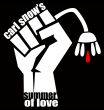Joined: 29 Apr 2009 United States  Lessons: 2 Karma: 23 
|
* Theory ...UGH, just the word.
*(just finished teaching for the day---too tired to Master the CD's, I’ve been paid for(shh) due late next week so...here i am for better or worse)
OK then
P R A C T I C E -- T I P S it is.
I can relate to the whole "what next? whats new?" dilemma i think i see described a few times above.
Since the mid-70's, when i started, i think i have stubbed my musical toes on every mental, physical and/or spiritual stone on the path to 'now'.
a few observations and suggestions ... in no order whatsoever
Chords are not practiced enough, not NEAR enough, not even close to near-enough.
Chords are the lifeblood of music, and require no theory at all to practice well. I recall my mentor (and other teachers) being fond of my coming in with chords i wanted the NAMES of, lol, and being told (its true) that: "it doesn't matter, Carl, it sounds good, and THAT is what matters"--(Me)...But what IS this one and that one and...--(Terry): "Those are nice sounding"(meaning... we have more than names to learn we have music to create.
~ CREATE ! ~
The biggest most helpful word i was ever taught musically...
Create
(more on this a tad later in the post)
Yer Plank
(Your Guitar, for the non-redneck git-pickers out thar)
>>>More accurately your CHOICE OF Plank(Guitar)... is more important than you could imagine.
If you are playing your first guitar, and many of you are, I would guess; I hope it is a cheap high action steel string acoustic.
Why?
Simple; If you can play a fully barred 'F' on a cheap acoustic, welllll, other guitars will seem easy.
After first picking up my Uncle's old junk guitar back in 1974 or so, and 'making up' chords on it (it would be a few months before a proper teacher was hired for me) I have and always will stress the importance of practicing under 'bad conditions', Dig? … I am NOT AT ALL saying , 'please practice only on that 'rusty and bent old Box-with-strings' ya bought at the Pawn Shop, lol, I’m simply stating the fact that playing something that takes a toll on ya will, in the end, pay off BIG. I still do this at least once a week.
---
Moving away from the Pawn-Plank exercise—(that word “practice” gets caught in my throat now, as few 'get' what “practice is” [topic for another day])--its a given fact that playing an acoustic steel-string Git-fiddle will produce far better results in 3 hours (or 2 or 1) than the LUXURY of a nice electric will in days. Its a matter of physics. Its a matter of strength-stamina. It ain't theory, its a fact.
I am NOT saying 'don’t play yer Tele'(or whatever elec) … I'm simply stating that moving away from it towards the old 'first guitar' will make you a far better all-around player.
IF, for some odd reason your 1st guitar was/is an electric...Go to the Pawn Shop or Music Store (etc...anything but online Git sales) and snag a cheap Acoustic, and/or if you CAN (via a Job or really nice parents...etc) a Nice Acoustic.
If you are stuck with only an electric guitar, as some of my students are, (argh), pulling the plug and practicing w/out an Amp helps greatly with tone and such, as Tone comes firstly from the way your fingers interact with the neck (right & Left hands). You may find nifty Amp settings, try pedals and the like out BUT in the end no amount of electronics will make up for a lack of fundamentals that are specific to the wood, wire, and you.
Elec/Acoustic, EITHER offer the opportunity to play every chord known to man (and then some) !
Make some chords up, don’t worry about that theory stuff yet, there’s plenty of time for that later, just find some fingerings that sound good to you up and play them fearlessly!
Combine these with other chords, chords you know; not those 1+5 “power” chords(which have blessed little power) but real chords, 5 and six string chords, chords that involve the thumb, FULL Barre's wherein you can pick every string (Fmaj, 1st fret) and have it not only sound, but sound NICE, and sustain!
^^^ A little secrete for the above = there is NO separation between chords and scales. Yup , Yupper, Yessiree, Scales = Chords = scales. In the world of *Making-Dots (shorthand for writing music on staff paper) this is referred to as Chordscale. The truth of it is obvious (or will be) when you listen to great Sax or Trumpet Players such as Coltrane and/or Miles play CHORDs … or speak of the chords they play. REMEMBER, Unless you pluck all strings in a chord at once you are not voicing the chord all at once, you must first 'travel' across 6 strings or so, THIS is exactly what horn players do to play cordially **For a great example, find and play: John Coltrane – Giant Steps**
Scales are a bore. Well that’s not fair really, scales bore ME, but then I have played them for nearly 40 years lol, what I mean is scales are boring IN THAT when playing the major scale (1-7) (some theory laden folks would call that the major Mode) You will Play the same notes (scale) 2 ½ time PER FRET (zzzzzz) When using “3-pers” (three notes per string) scales (go ahead and learn the Little positional “pocket-scales” but I strongly and for many many reasons suggest 3-per string) you will hit the 7th tone on the 4th (D) string then repeat (low-high) it again, then repeat to the 4th degree(yer guitar is tuned in 4ths so its handy) That amounts to Do Re me.... x 3 (almost) 1 2 3 4 5 6 7 1 2 3 4 5 6 7 1 2 3 4 B-oring.
I recommend learning these scales from every string even the high-e.
I also recommend
(drumroll)
Changing scales after the 7th degree
IE:
Say I play G: 1 2 3 4 5 6 7 ...on more fret and its ONE AGAIN... SO
TRY THIS
G 1234567 slide to new “1” (Octave G) and play , oh I dunno , any OTHER scale, the Nat-Min (6), Diminished (7th) or using the olden names G-Ionian into G-Lydian from that same position … Yer 1st finger simply slides to the “1” and continues (although you must alter the fingering of Scale #2 due to the B string.
NOW
Try this again BUT
When you reach 7 (again) on the B string change scales yet again
G 1234567 – G-Lydian 123#4567- G-Mixolydian.....
Then simply start to mix and match these, DO NOT worry about the theory of this, think about playing with a fluid motion in tempi, nice tone, etc IE: play this well.
The “theory” means nothing at all here, the practice is the key
Triads Triads Triads and MORE TRIADS
Play 'em Love 'em they are your best friends! Any player worth his/her salt will tell you that while scales are a must, Tri's are the crux.
Triads are best learned NOT in the scale-like form IE: G Triad G = 3rd fret 6-st and the third and fifth are BOTH played on the A string. Those are good, nice, need ta know....BUT
THREE-STRING-TRIADS are where its at from the standpoint of
Chordal augmentation
Chordal Inversion / Triadic inversion
and of course, what my younger students all love....
“Lead” guitar playing :)
Know your Triad's and they will reward you infinitely
A fav Tri comes to mind
Say a friend is playing G in the open position,
play G's 2nd inversion (3-5-R) : 3rd finger fret 7 on B (E string) + 1st finger Barring the D (A string) and G (D string.... With VERY little effort, but some imagination, you made that G major far less boring!
Learn ALL Triads and the lead/chord/etc Payoff is immeasurable, listen to Friz, Sco, Grant Green , Wes Montgomery, ….etc Not many “scales” but a boatload of connected Triads.
RIGHT HAND
again I say
RIGHT HAND
I Joke about this because until year 3 or 4 or 10 (LOL) many students do not 'get' the incredible importance of practicing the RIGHT hand.
Its as important AND as tricky to control as the left hand. Sometimes Moreso.
Too hard to write about (and this old dude has been writing fer awhile now lol)
BUT
ALWAYS keep this in mind : when playing, look at the right hand and check two problem areas out
1: Can you see your right palm (at all) ...if so … work on it!
2: Are your R-Hands fingers 'coiled' ? Kinda like a fist? ...work on that, the should be resting somewhere below the high-e string.
(there are exceptions to the above but very very few)
W R I T E
then write more. (repeat)
Write fearlessly and write w/out distractions such as drum patterns.
Add words, add melodies add harmonies
then
WRITE more.... its good for the soul and great for your musicality (great place to put those chords you invented)
My wife is yelling 'ya wanna eat!?' so I suppose this is all I can offer this week as I am one seriously hungry man :)
BUT before I go.
After you finish all this stuff, after you have beaten that Plank to death, after your voice is sore and your fingers are bleeding.
Read a little “Theory”(mebbe name those chords...eh?) …
I hope that helped
RAWK!
Cs
|







